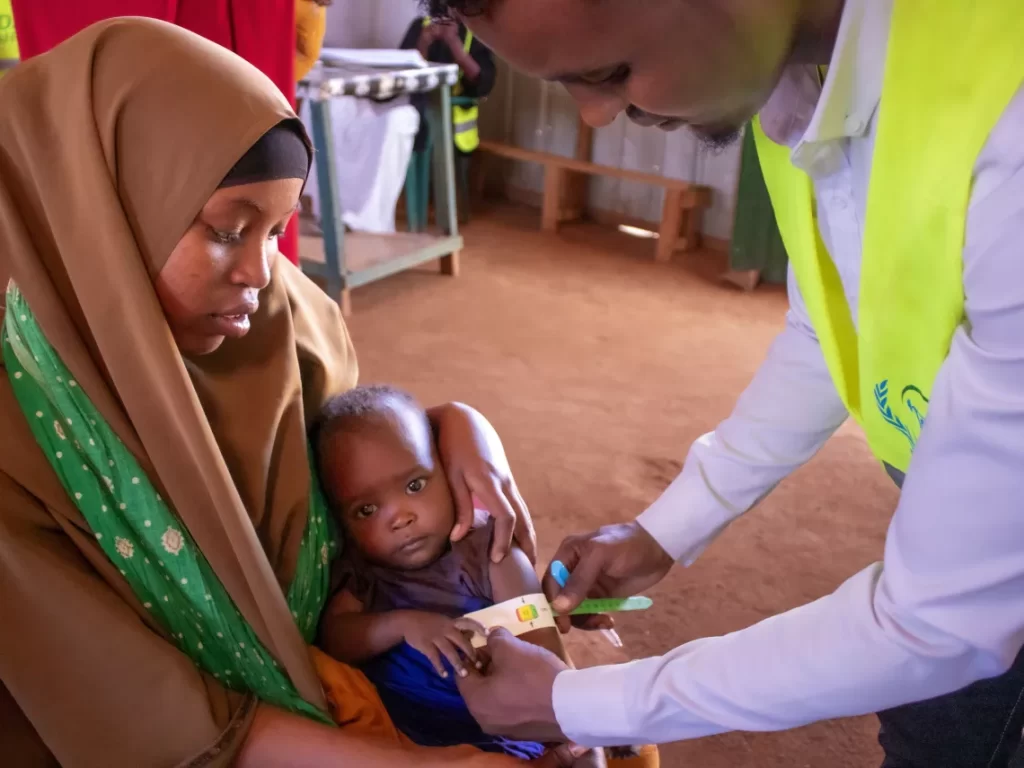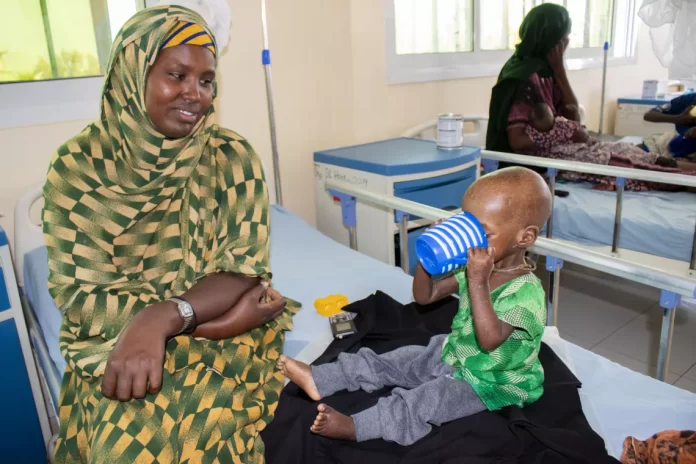Facebook Twitter Instagram Somali Magazine - People's Magazine
In the heart of Somalia Galmudug region, a critical initiative is bringing hope to vulnerable families facing the daily threat of malnutrition. The Ministry of Health in Galmudug, in partnership with UNICEF and the World Food Programme (WFP), is delivering lifesaving nutrition services through the Joint Resilience Programme at the Warcade Nutrition Centre in Dhusamareb.
The programme addresses urgent nutritional needs in a region long affected by food insecurity, drought, and displacement. At the Warcade Centre, malnourished children and their families receive comprehensive support—ranging from therapeutic feeding and emergency nutrition interventions to community-based education and routine health screenings. For many, this centre is not only a place of recovery but a lifeline in uncertain times.
Through this collaborative effort, the Ministry of Health, UNICEF, and WFP are working together to tackle Somalia’s deep-rooted humanitarian challenges with sustainable solutions. The programme’s focus extends beyond short-term relief; it is designed to build resilience within the community and equip families with the knowledge and tools needed to prevent malnutrition in the long term.

Mothers are educated on the importance of breastfeeding, hygiene, and balanced diets. Children suffering from acute malnutrition are given specialized therapeutic food and monitored closely by healthcare workers trained to detect early signs of health complications. For the many families impacted by ongoing drought and economic hardship, these services can mean the difference between life and death.
This initiative is part of a broader push to improve child health and reduce preventable deaths across Somalia. Years of conflict, climate change, and fragile infrastructure have made it difficult for communities like Dhusamareb to access consistent healthcare. The Joint Resilience Programme helps bridge that gap by deploying resources to areas that are hardest hit and often overlooked.
What sets this programme apart is its emphasis on both immediate intervention and long-term impact. Health workers and community volunteers are trained to identify at-risk children early, administer rapid treatment, and offer tailored support based on each family’s unique situation. By involving local communities in the process, the initiative ensures that the knowledge stays in place even after international agencies scale down their operations.
The presence of the Warcade Nutrition Centre has had a ripple effect across Dhusamareb. Local leaders have reported an increase in health awareness among residents, and more families are seeking medical help sooner rather than later. The programme is not just about feeding hungry children—it’s about creating systems that can withstand future crises and empowering communities to care for their own.
This commitment to resilience comes at a critical time. Climate shocks and economic challenges continue to threaten food security across Somalia, with millions facing hunger every day. By investing in local solutions and building capacity at the community level, the Ministry of Health, UNICEF, and WFP are planting the seeds for lasting change.
As Somalia moves toward recovery and development, programmes like this one in Dhusamareb stand as beacons of hope. They show that with the right support, even the most vulnerable communities can overcome adversity and reclaim their futures.

